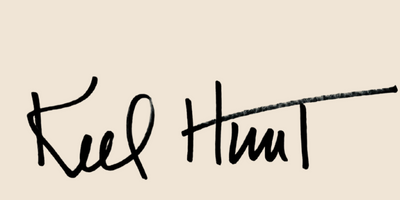What Would Suffragists Think?
/This week we observe the 100th anniversary of the 19th Amendment, the great landmark in U.S. history that gave women the right to vote. We especially celebrate it across Tennessee, the decisive 36th state to ratify.
As it turns out, we were vividly reminded by two big news events before the weekend why the 19th has been so important in American life for so long:
Senator Kamala Harris of California became the first woman of color to become a national party’s candidate for vice president. The Democrat Joe Biden announced she will be his running-mate. (You can imagine the suffragists of a century ago smiling at this news.)
Meanwhile President Trump, on a somewhat lower road, admitted his aim to prevent the U.S. Postal Service from helping Americans wanting to vote by mail during the coronavirus pandemic. (He seems to fear a big turnout.) Read here what he said: https://www.washingtonpost.com/business/2020/08/12/postal-service-ballots-dejoy/
These two developments, to my thinking, together pulled into a sharp focus the high stakes for democracy in this strange election year for you and me.
I wondered what the suffragists of 1920 might make of all this now, if they could but observe our current scene one hundred years later?
I believe they would salute the former, and detest the latter.
o
This afternoon I caught up, by phone, with the writer Elaine Weiss at her home in Baltimore. She is the author of The Woman’s Hour: The Great Fight to Win the Vote. Her acclaimed book has become the definitive history of the suffrage fight for the 19th Amendment and of Tennessee’s contentious, climactic role in it. (It clearly recalls, for instance, how the movement was chiefly a white one, failing to secure the vote for African-American women.)
So, I put my question to her: What do you imagine the suffragists would think, watching the U.S. political scene today?
She minced no words, telling me: “They would shake their heads and ask us, ‘Have you learned nothing in the past century?’
“I think they would be disappointed,” she continued, “that a citizen’s right to vote is being suppressed – and not by rogue elements but by our legislatures, and by whole portions of our political apparatus. I think they would shake their heads at the very idea that letting all citizens vote is somehow debatable again.
“We’ve fought wars to protect our democracy, to defend democracy. But, in our own democracy, we see complacency again about what that means.”
Weiss brings, too, a personal family connection to this current Postal Service scandal: Her father, she told me, was a postman in his career.
“I was nurtured and raised in the postal service,” she said. “My father had served in the military and later went to work, as many did, for the Post Office. He would be angry about this. He’d be writing letters. He’d be in the streets, if necessary. This is blatantly manipulative. It’s a federal crime to impede the delivery of mail, you know.”
o
Where was it written that the Post Office must make a profit? Not in the U.S. Constitution, which established it. This essential institution also has had enormous popular support ever since.
The deliveries by U.S. mail - of medicines, Social Security payments, ballots, unemployment relief checks (when Washington can agree) - is a service, not a business. Make it more efficient, yes, but such a fundamental public utility is inherently inefficient given its purpose. Anyone who corrupts it through sabotage, theft, or manipulation ought to be arrested, then thrown in the nearest stockade. Anyone.
Suffragists, in their day, dealt with many types of politicians. Throughout their long campaign, they used many tactics and also slogans to keep the purpose of their movement burning bright. But three words especially - “Deeds Not Words” - helped them to keep the movement focused, and challenge many elected officials from Washington to Nashville.
“Deeds Not Words,” they insisted.
That’s a useful focus now as then, whenever confronting a dissembling politician, high or low.
Watch what the president does, not what he says. And always cast your ballot. It did not come cheap.
© Keel Hunt, 2020


